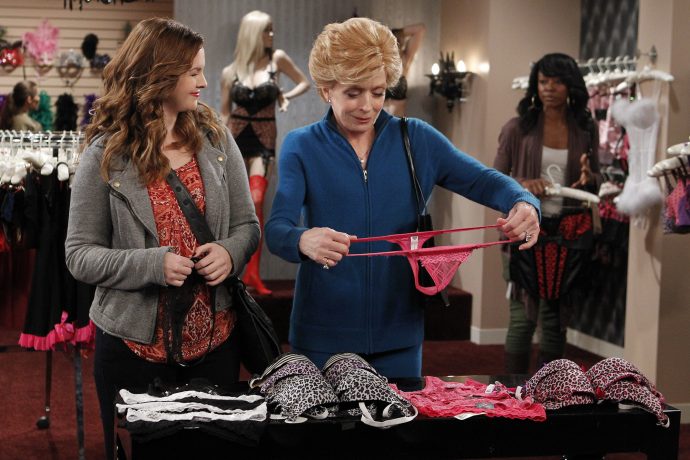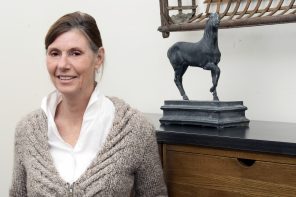In the new novel “The Miniaturist,” Jessie Burton’s superb evocation of 17th-century Holland, a wealthy merchant gives his bride a dollhouse that replicates their well-appointed Amsterdam home and encourages her to embellish it. She begins writing to the title character for tiny accessories that are meaningful to her – an exquisitely crafted lute and her beloved marzipan. But soon little furnishings and models of two- and four-legged creatures begin arriving unsolicited, at first mirroring and then foreshadowing the lives of the bride and her husband, who is not what he seems.
To say more about the book, reminiscent of Tracy Chevalier’s “Girl With a Pearl Earring,” would be to say too much. What you can say is that it belongs to a genre of fiction that often finds its way into films in which a house is a metaphor for the conflicted identity of its owner and the troubled relationships of those who dwell in it.
It’s a subject that’s been played for thrills (“Rebecca”), chills (“The Amityville Horror”), laughs (“Mr. Blandings Builds His Dream House”), drama (“Wuthering Heights,” “Bleak House”) and romance (paging Jane Austen.) And it’s one we covered in WAG’s March 2013 “Gimme Shelter” issue.
But what about the people who sell the houses? If we are sometimes conflicted about our home, not-so-sweet home, there’s nothing ambivalent about our feelings toward real estate brokers: We can’t stand them.
At least not on the big and small screens. There they deceive and dissemble as they connive to sell us that steal of a fixer-upper (the 1986 film “The Money Pit”) or stab one another in the back in pursuit of the ABC mantra – “Always Be Closing.”
So says Blake, the foul-mouthed henchman sent to motivate the desperate agents in David Mamet’s searing play “Glengarry Glen Ross,” which was made into a 1992 film starring Al Pacino, Jack Lemmon, Alec Baldwin and Kevin Spacey.
Not all agents are depicted as cutthroat. On the Fox animated comedy “King of the Hill” (1997-2010), Peggy Hill was earnest, hard working – and totally oblivious when it came to selling real estate, teaching Spanish or writing a freelance newspaper column, becoming indignant when one of her clients refused to buy a house.
But Peggy also didn’t know the meaning of the word “quit.” Or as Phil Dunphy (Emmy Award winner Ty Burrell), the hapless “cool dad” and real estate agent on the ABC hit “Modern Family,” would say: “There is no ‘done’ in Dunphy.”
“You know what?” he goes on. “You can insult a lot of things about me. … But don’t insult my selling. That crosses a line. What line? Oh, you don’t see it? That’s because I just sold it.”
Give Phil credit for being honest (sometimes a bit too much as when he notes in a speech before a gathering of agents: “I see the great Realtor Margaret Wilson is here, looking more curvaceous than ever. Talk about your balloon payments.”)
He’s certainly not like that snake-oily country bumpkin Eustace Haney (Pat Buttram) who sold city slickers Oliver Wendell Douglas (Eddie Albert) and wife Lisa (Eva Gabor) the ramshackle Old Haney Place on “Green Acres” (CBS, 1965-71). No wonder luxury-real estate agent – and bridegroom-to-be – Peter Claven (Paul Rudd) doesn’t have a best friend to stand up for him in the 2009 buddy comedy “I Love You, Man.”
When it comes to going for brokers, though, it would be hard to top the mother of all Realtors, Evelyn Harper (Holland Taylor), on CBS’ “Two and a Half Men,” which concludes its 11-year run this season. From her pastel power suits with Madeleine Albright-like pins affixed just so to her helmeted coif to her hypercritical, controlling personality that has cowed nebbishy son Alan (Jon Cryer) and even irrepressible son Charlie (played by bad-boy Charlie Sheen, supposedly killed off in the ninth-season premiere), Evelyn is the ultimate power broker.
She met her match in Lydia (Katherine LaNasa), one of Charlie’s many girlfriends, a fellow Realtor who wore pastel-colored power suits with prominent pins, had a withering way with words and, well, you get the picture.
Lydia: “I recognize you from your bus-bench ads. People all over town are sitting on your face.”
Evelyn: “Well, dear, if you work hard, someday people will be sitting on your face, too.”
Charlie didn’t see what everyone else did. But he was spared any Oedipal drama when he learned that one covers Bel Air while the other’s listings are in Beverly Hills.
Hey, you are where you sell.





